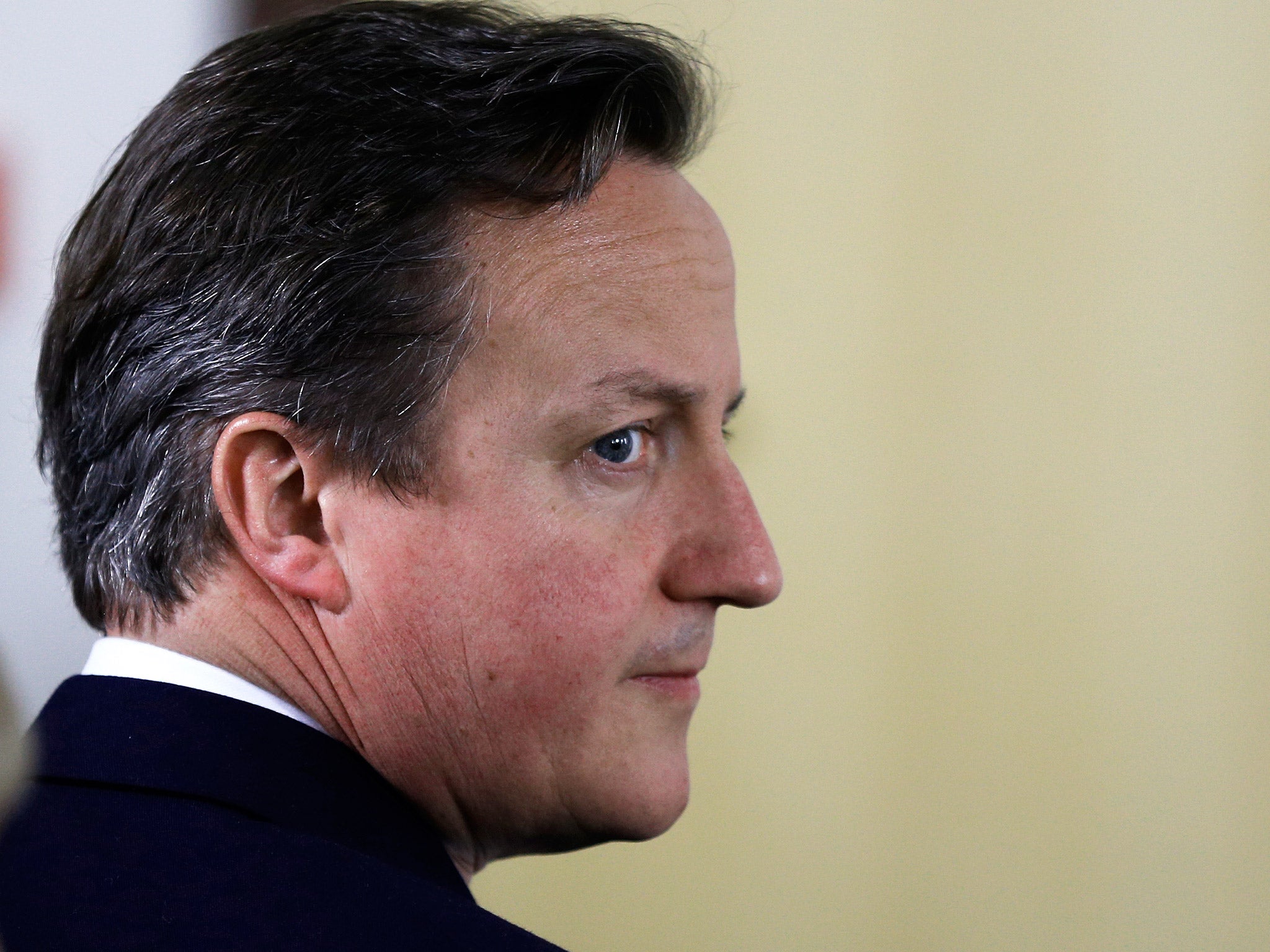The day that Britain resigned as a global power
As David Cameron arrives in Riga, a columnist for the Washington Post writes about how the inward turn of the UK is a tragedy for us all

Your support helps us to tell the story
From reproductive rights to climate change to Big Tech, The Independent is on the ground when the story is developing. Whether it's investigating the financials of Elon Musk's pro-Trump PAC or producing our latest documentary, 'The A Word', which shines a light on the American women fighting for reproductive rights, we know how important it is to parse out the facts from the messaging.
At such a critical moment in US history, we need reporters on the ground. Your donation allows us to keep sending journalists to speak to both sides of the story.
The Independent is trusted by Americans across the entire political spectrum. And unlike many other quality news outlets, we choose not to lock Americans out of our reporting and analysis with paywalls. We believe quality journalism should be available to everyone, paid for by those who can afford it.
Your support makes all the difference.On Monday, David Cameron gave his first major speech after being re-elected as Prime Minister. Confronting a world of challenges — including Greece’s possible exit from the euro, a massive migration crisis on Europe’s shores, Ukraine’s perilous state, Russia’s continued intransigence, the advance of Isis and the continuing chaos in the Middle East — Cameron chose to talk about . . . a plan to ensure that hospitals will be better staffed on weekends.
Okay, that’s a bit unfair. Leaders everywhere, including in the United States, understand that “all politics is local.” But spending a few days recently in Britain, I was struck by just how parochial it has become. After an extraordinary 300-year run, Britain has essentially resigned as a global power.
Over the next few years, Britain’s army will shrink to about 80,000. A report from the Royal United Services Institute predicts that the number could get as low as 50,000, which, the Daily Telegraph points out, would be smaller than at any point since the 1770s — and, as David Rothkopf of Foreign Policy magazine notes, about the same size as the New York Police Department.
The International Institute for Strategic Studies concludes that over the past five years “the 8 per cent to 9 per cent decrease in the UK military defence budget . . . has led to a 20 per cent to 30 per cent reduction in conventional capability.” No wonder, then, that Britain has been a minor, reluctant ally in the air strikes against Isis. Britain’s 30-year-old Tornado fleet of planes is a generation behind the American F-22s it flies alongside. The Royal Navy, which once ruled the waves, operates without a single aircraft carrier (although two are under construction).
Nato members are supposed to maintain defence spending at 2 per cent of their gross domestic product. Britain is hovering around that mark and has refused to commit to maintaining budgets at that level. (It should be said that most other European countries are worse, which means that the United States accounts for more than 70 per cent of Nato's military spending.) The same is true of other elements of Britain’s global influence. In Cameron’s first term, the Foreign Office budget was cut by more than a quarter, and further trims are likely. The BBC World Service, perhaps the most influential arm of the country’s global public diplomacy, has shuttered five of its foreign-language broadcasts, and the organization’s entire budget has been slashed, with more cuts to come.
The country is suspicious of a robust foreign policy of any kind — including serious sanctions against Russia, getting tough in trade talks with China, the use of force in the Middle East and an engaged relationship with the rest of Europe. During the recent election, as The Post reported, foreign policy barely surfaced.
Why does this matter? Because on almost all global issues, Britain has a voice that is intelligent, engaged and forward-looking. It wants to strengthen and uphold today’s international system — one based on the free flow of ideas, goods and services around the world, one that promotes individual rights and the rule of law.
This is not an accident. Britain essentially created the world we live in. In his excellent book God and Gold, Walter Russell Mead points out that in the 16th century many countries were poised to advance economically and politically — Northern Italy’s city-states, the Hanseatic League, the Low Countries, France, Spain. But Britain managed to edge out the others, becoming the first great industrial economy and the modern world’s first superpower. It colonized and shaped countries and cultures from Australia to India to Africa to the Western Hemisphere, including of course, its settlements in North America. Had Spain or Germany become the world’s leading power, things would look very different today.
It is a paradox, readily apparent to visitors to Britain, that London continues to thrive as a global hub, increasingly cosmopolitan and worldly. More than a third of Londoners were born outside the United Kingdom. And this government has been more than willing to travel around the world petitioning for investment, whether it be Chinese, Russian or Arab. That is fine as a strategy for an aspiring entrepôt or financial haven, but Britain is not Luxembourg. It is, even now, a country with the talent, history and capacity to shape the international order. Which is why the inward turn of the United Kingdom is a tragedy not just for it but for all of us.
© Washington Post: Fareed Zakaria is a US journalist
Join our commenting forum
Join thought-provoking conversations, follow other Independent readers and see their replies
Comments